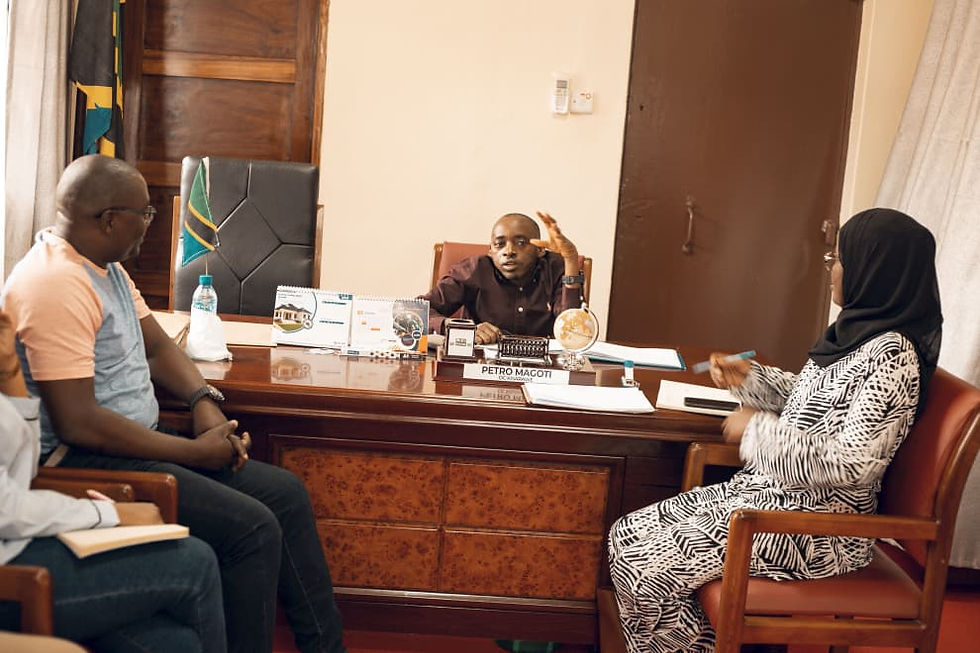A fresh perspective on learning and unlearning how to address social norms.
- C-Sema Team
- Dec 3, 2024
- 3 min read
Updated: Jul 9, 2025
At a recent seminar facilitated by Tostan, the KUWAZA consortium gained a new and thought-provoking perspective on the complex issue of social norms. The seminar offered a refreshing lens, suggesting that social norms are not inherently bad. Instead, they are deeply tied to the personal and shared values of communities. This nuanced understanding challenged our traditional approach to addressing harmful practices rooted in social norms.

For years, efforts to combat harmful practices often framed social norms as the root of the problem. We sought to dismantle and eradicate these norms, viewing them as barriers to progress and well-being. However, Tostan’s perspective invites us to rethink this approach. Social norms, they emphasized, serve as a cultural compass, guiding behaviors and creating cohesion within communities. The real challenge lies not in dismantling social norms but in identifying and addressing the harmful practices that may arise within their framework.
The seminar highlighted the importance of distinguishing between social norms and harmful practices. Social norms reflect the collective values and beliefs of a community, often rooted in a shared sense of identity and purpose. Norms around hospitality, mutual respect, and collective responsibility are pillars of many societies, fostering strong social bonds and support systems.
Harmful practices, on the other hand, are actions or behaviors that undermine the well-being, rights, or dignity of individuals. These practices often persist due to a misunderstanding or misapplication of social norms. Practices like child marriage or Female Genital Mutilation (FGM), for instance, are often justified through the lens of tradition or cultural identity. However, they conflict with fundamental human rights and can have devastating consequences for individuals and communities.

Our team reflecting on personal and shared values that inform individual and later communities social norms.
The key, therefore, is not to vilify social norms but to engage communities in a process of reflection and dialogue. This involves exploring the values underlying social norms, distinguishing harmful practices from beneficial ones, and fostering discussions that encourage communities to critically examine their traditions.
Central to this journey of learning and unlearning is relational building. Through authentic and respectful relationships, development workers like ourselves can support communities as they reflect on their values and aspirations. Trust and mutual respect create a foundation for meaningful dialogue and collaboration, enabling communities to:
Reassess their values: Open conversations encourage communities to re-evaluate the principles focusing on their social norms and practices. These discussions often uncover shared aspirations for dignity, well-being, and progress.
Discover their capacity to aspire: Strengthening relationships nurtures confidence within communities, enabling them to envision a future aligned with their highest values both personal and shared. This process shows their agency in driving change.
Build consensus: Trusting relationships provide a safe space for communities to collectively decide on the practices they wish to uphold or transform, ensuring that changes are both sustainable and deeply rooted.
As development workers, our role is not to dictate or impose solutions but to act as facilitators. Communities are the experts of their own experiences, possessing the wisdom to craft solutions that resonate with their values. By guiding this process rather than leading it, we empower communities to take ownership of change.
This new perspective has prompted us to reflect on our previous approaches. Were we inadvertently alienating communities by framing social norms as the enemy? Could a more productive approach involve working with communities to uncover the positive intentions behind their norms while addressing harmful practices collaboratively?
Adopting this approach, would mean putting more effort in building trust and fostering genuine partnerships with communities. This shift acknowledges the agency and wisdom of the communities we work with, affirming that meaningful change comes from within. It also ensures that our interventions are respectful, sustainable, and rooted in shared values.
As we move forward, we understand that the journey of learning and unlearning will continue to unfold, and this fresh perspective is an important step forward. We believe that this shift will not only enhance our impact but it will also strengthen the bonds of trust and collaboration with the communities we serve.
Prepared by C-Sema's Communications Team.



